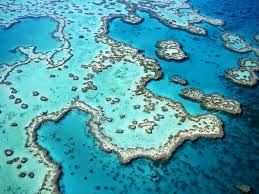Marine biologists in Australia have found the first evidence that the coral animal itself, not just its algal symbiont, may play an important role in regulating local climate. The researchers have shown that the coral animal makes  dimethylsulphoniopropionate (DMSP). This compound creates “the characteristic ‘smell of the ocean”. Since this tell tale smell is actually derived from the DMSP compound, it indicates how abundant the molecule is in the marine environment. In fact we could smell it in a single baby coral,” says AIMS chemist Cherie Motti, and co-author on the paper published in the journal Nature.
dimethylsulphoniopropionate (DMSP). This compound creates “the characteristic ‘smell of the ocean”. Since this tell tale smell is actually derived from the DMSP compound, it indicates how abundant the molecule is in the marine environment. In fact we could smell it in a single baby coral,” says AIMS chemist Cherie Motti, and co-author on the paper published in the journal Nature.
“This is the first time that an animal has been identified as a DMSP producer. Previously it was assumed that the large concentrations of DMSP emitted from coral reefs came solely from their symbiotic algae,” says lead author Jean-Baptiste Raina, of AIMS@JCU and the ARC Centre of Excellence for Coral Reef Studies at James Cook University (CoECRS).
Production of DMSP was found to increase when corals are subjected to water temperatures that put them under heat stress. DMSP and its breakdown products act as antioxidants (chemical defence compounds) protecting coral tissues from environmental stress.
The sulphur-based DMSP molecules also serve as nuclei for the formation of water droplets in the atmosphere – and hence help to create clouds. If coral numbers decline, the scientists warn, there could be a major decrease in the production of DMSP and this, in turn, will impede cloud formation.
“Cloud production, especially in the tropics, is an important regulator of climate – because clouds shade the Earth and reflect much of the sun’s heat back into space. If fewer clouds are produced, less heat will be reflected – which ultimately will lead to warmer sea surface temperatures,” Dr Raina explains.
Researchers believe that declining trends in coral cover and the associated decline in sulphur aerosol production from coral reefs may further destabilize local climate regulation and accelerate degradation of this globally important and diverse ecosystem.MORE … More:
The post Corals Create “The Smell” Of The Ocean And Regulate Climate appeared first on reefs.com.